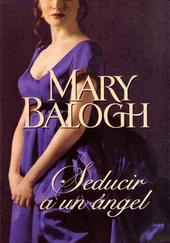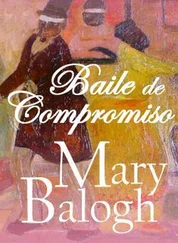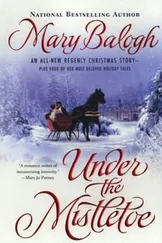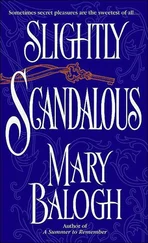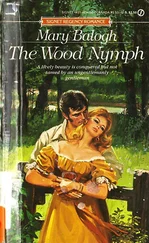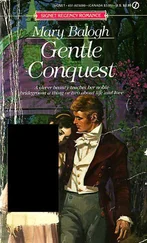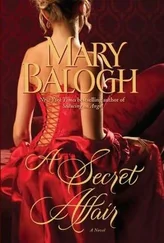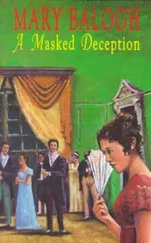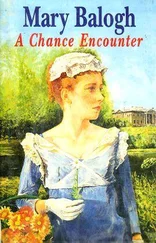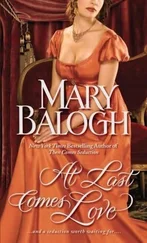“Well,” he said softly.
She half smiled. “You must understand,” she said, “that I am somewhat rusty. I have not acted for three months and am out of practice.”
“Heaven help us,” he said, getting to his feet, “if you were in practice. I might be dashing off into the rain to find the nearest available king to assassinate.”
“So what do you think?” she asked him.
“I think,” he said, “that it is time for bed.”
For a moment he thought she was going to refuse. She stared at him, licked her lips, drew breath as if to say something, then nodded.
“Yes,” she said.
He bent his head and kissed her. He was quite ready to tumble her to the floor and take her there and then, but why put them to that discomfort when there was a perfectly comfortable-looking bed in the next room? Besides, there were certain bodily realities to consider.
“Go and get ready,” he said. “I’ll wander downstairs for ten minutes.”
Again she hesitated and licked her lips.
“Yes,” she said and turned away. A moment later the bedchamber door closed behind her.
The next ten minutes, Rannulf thought, were going to feel like an uncomfortable eternity.
Devil take it, but she could act.
Judith stood with her back against the bedchamber door after she had shut it, and closed her eyes. Her head was spinning, her heart was thumping, and she was breathless. There were so many reasons for all three conditions that she could not possibly sort through them all to regain her customary composure.
Primarily, she had drunk too much wine. Four glasses in all. She had never before drunk more than half a glass in one day, and even that had happened only three or four times in her life. She was not drunk—she could think quite coherently and walk a straight line. But even so, she had consumed all that wine.
Then there had been the intoxicating excitement of acting before an audience—even if it had been an audience of only one. Acting had always been a part of her very secret life, something she did when she was quite, quite sure she was alone and unobserved. She had never really thought of it as acting, though, but as the bringing alive of another human being through the words the dramatist had provided. She had always had the ability to think her way into another person’s body and mind and know just what it felt like to be that person under those circumstances. Sometimes she had tried to use that ability to write stories, but it was not in the written word that her talent lay. She needed to create or recreate characters with her very body and voice. When she acted the part of Portia or Lady Macbeth, she became them.
But tonight acting had been more intoxicating than the wine she had drunk. She had played for her audience of one better than she had ever played before. He had been both Shylock and Macbeth, and yet he had been Ralph Bedard too, and she had been strangely excited, exhilarated by him. It had seemed as if the very air between them were sizzling with invisible energy.
She opened her eyes suddenly and hurried toward the screen at the far side of the room. She had only ten minutes in which to get ready—less than ten now. Her portmanteau had arrived and been brought up, she saw with relief. She would have a nightgown to wear.
But she stopped abruptly even as she bent down to open the bag. Get ready? For what? He had just kissed her again. He was coming in ten minutes’ time—less—to take her to bed. To do that to her. She was not even fully aware, except in the vaguest, most sketchy of ways, just what that was. Her knees felt unsteady. She felt breathless and lightheaded again. She was not going to let it happen ... was she?
It was time to end the adventure. But it had been—it was —such a very splendid adventure. And there would be no others. Not ever. She knew that women who fell into poverty and lived as unpaid poor relations in the homes of their wealthier family members stood little or no chance of ever changing the condition of their lives. There was only now, today. And tonight.
Judith tore open the portmanteau in haste. She was wasting precious time. How embarrassing it would be if he returned to find her in her shift or before she had relieved herself or washed herself or brushed her hair! She would think later about it, about how she would avoid it. There was a wooden settle in the other room. With a pillow and her cloak and one of the blankets from the bed, it would make a tolerable sleeping place.
He must surely have stayed away for longer than ten minutes. She was standing in front of the fire, clad decently in her cotton nightgown, brushing her hair, when his knock came at the door and it opened before she could cross the room to it or call out any summons. She felt suddenly naked. She also knew that she must be more inebriated than she had realized. She felt a rush of longing rather than the horror she knew she ought to be feeling. She did not want to end the adventure. She wanted to experience that before her youth and her life came to an effective end. She wanted all of it—with Ralph Bedard. He was breathtakingly attractive—she wished there were a more powerful word than that for his appeal.
He stood looking at her with narrowed eyes, his lips pursed, his eyes moving slowly down her body to her bare feet.
“Is it your profession or your instinct,” he said at last, his voice low, “that has taught you to understate your appearance? White cotton, with not a frill or a flounce! You are very wise. Your beauty speaks loud and clear for itself.”
She was ugly. She knew that. People—even her own mother—had always compared her hair to carrots when she was a child, and it had never been a compliment. Her skin had always been too pale, her face too disfigured with freckles, her teeth too large. And then, by a horrible cruelty of fate, just when her hair had begun to darken a shade and the worst of her freckles had begun to disappear and her face and mouth had started to fit her teeth, she had begun to shoot up into something resembling a beanpole. She had grown as tall as Papa. She had felt only temporary relief when the beanpole had begun to take on the shape of a woman. To add insult to injury, that shape had come to include very full breasts and wide hips. She had always been an embarrassment to her family and worse than that to herself. Papa had been forever instructing her to dress more modestly and to cover her hair, and he had been forever blaming her for the leering glances men tended to send her way. It had always been a severe burden to be the ugly one of the family.
But tonight she was willing to accept that for some strange reason—probably the wine, since he had drunk more of it than she had—Ralph Bedard found her attractive.
She smiled slowly at him without removing her eyes from his. Wine had a strange effect. She felt a degree removed from reality, as if she were observing herself rather than up front being herself. She could stand in a bedchamber in her nightgown with a man, knowing that he intended taking her to bed within the next few minutes, and yet smile at him with slow invitation without feeling quite responsible for what she did. The observer was doing nothing to intervene on the side of virtue and respectability. And Judith did not want her to.
“I suppose you have been told a thousand times how beautiful you are,” he said, his voice sounding wonderfully husky.
There! He really was drunk.
“A thousand and one now,” she said, still smiling. “And I suppose you have been told a thousand and one times how handsome you are.”
It was a lie. He was not handsome. His nose was too prominent, his eyebrows too dark, his hair too unruly, his skin too swarthy. But he was overpoweringly attractive, and attractive seemed ten times more appealing than handsome at this precise moment.
Читать дальше


